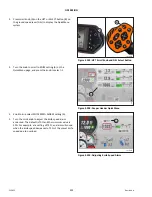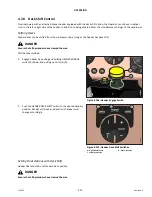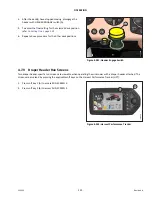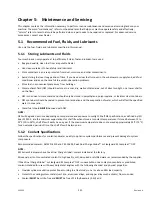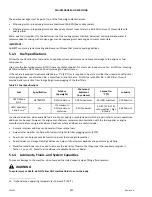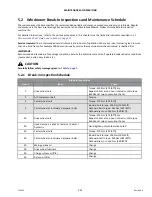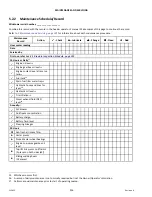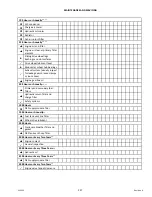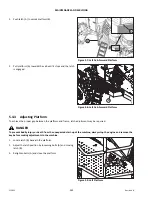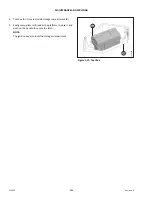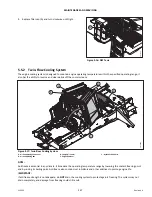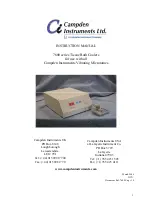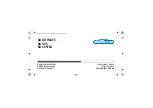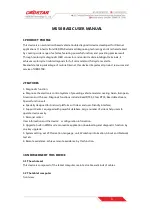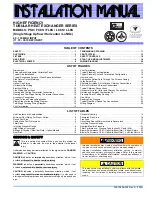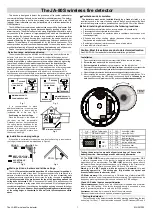
215922
232
Revision A
The additive package must be part of one of the following coolant mixtures:
•
Ethylene glycol or propylene glycol base prediluted (40
–
60%) heavy duty coolant
•
Ethylene glycol or propylene glycol base heavy-duty coolant concentrate in a 40
–
60% mixture of concentrate with
quality water
Water quality is important for the performance of the cooling system. Distilled, deionized, or demineralized water is
recommended for mixing with ethylene glycol and propylene glycol base engine coolant concentrate.
IMPORTANT:
Do
NOT
use cooling system sealing additives or antifreeze that contains sealing additives.
5.1.3
Fuel Specifications
Follow the specifications for fuel quality to optimize system performance and prevent damage to the engine or fuel
components.
Use only ultra low sulphur diesel (ULSD) from a reputable supplier. For most year-round service, No. 2 ULSD fuel meeting
ASTM specification D975 Grade S15 will provide good performance.
If the vehicle is exposed to extreme cold (below -7°C [20°F]) or is required to operate at colder-than-normal conditions for
prolonged periods, use climatized No. 2 diesel fuel, or dilute the No. 2 ULSD fuel with 50% No. 1 ULSD fuel. This will
provide better protection from fuel gelling or wax-plugging of the fuel filters.
Table 5.1 Fuel Specifications
Fuel
Specification
Sulphur
(by weight)
Water and
Sediment
(by volume)
Cetane No.
°C (°F)
Lubricity
ULSD Grade
No. 2
ASTM D975
0.5% maximum
0.05% maximum
40 (104) minimum
520 Microns
ULSD Grade No.
1 and 2 mix
11
n/a
1% maximum
0.5% maximum
preferred
0.1% maximum
45
–
55 (113
–
130)
cold weather / high
altitude
460 Microns
In extreme situations, when available fuels are of poor quality or problems exist which are particular to certain operations,
additives can be used; however, the engine manufacturer recommends consultation with the fuel supplier or engine
manufacturer before using fuel additives. Situations where additives are useful include:
•
A cetane improver additive can be used with low cetane fuels.
•
A wax crystal modifier can help with fuels with high cold filter plugging points (CFPP).
•
An anti-icer can help prevent ice formation in wet fuel during cold weather.
•
An antioxidant or storage stability additive can help with fuel system deposits and poor storage stability.
•
Diesel fuel conditioner can be used to increase the lubricity of fuels so that they meet the requirements given in
Table
. Diesel fuel conditioner is available from your Dealer.
5.1.4
Lubricants, Fluids, and System Capacities
To prevent damage to the machine, do not exceed the stated capacity when filling a fluid reservoir.
WARNING
To avoid injury or death, do NOT allow ANY machine fluids to enter the body.
11. Optional when operating temperature is below 0°C (32°F).





